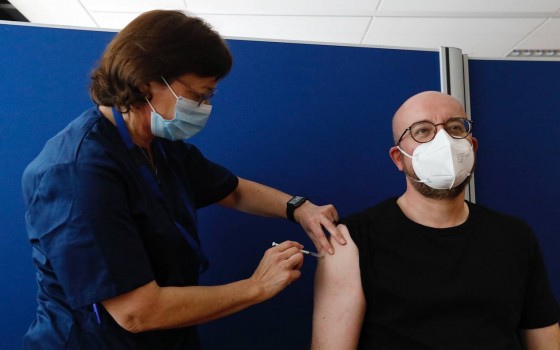
Global Health: These are the reasons for the outbreak of cholera in Syria, and only 15 percent of citizens have received a vaccine against Corona

- Europe and Arabs
- Wednesday , 21 September 2022 17:32 PM GMT
Dr. Ahmed Al-Manzari, Regional Director for the Eastern Mediterranean, revealed during a press conference on the health situation in Syria, that the organization is coordinating with the Syrian government and ruling parties at all levels to facilitate our movements and ensure that our aid reaches every Syrian.
As part of our efforts to confront the current cholera outbreak, a shipment of medicines and supplies arrived two days ago at Damascus airport from our logistics center in Dubai. These supplies, which are sufficient to cover 2,000 severe cases and 190,000 mild cases, will be distributed to health facilities in northeastern Syria, where the outbreak is concentrated. A second shipment is expected later today.
He explained that until today, only 15% of all Syrians have received the Corona vaccine, with a low percentage of obtaining it among priority groups such as health care workers and the elderly, which increases the risks of severe infection and detention in hospital for treatment, stressing The World Health Organization is working with partners to increase the uptake of the vaccine and increase awareness of its benefits in stopping the high incidence of infection and preventing severe illness and hospitalization for treatment.
“Syrians have suffered under more than 12 years of devastating conflict, losing loved ones, homes and livelihoods, and for this, we owe it to them to help preserve their most basic right, the right to health,” he said.
He added that our top priority at the moment is to stop the spread of this deadly disease by continuing to support rapid response teams, expanding the scope of surveillance, testing and tracing contacts, while enhancing awareness in affected and at-risk communities about ways to prevent, and we also cooperate with partners in testing water quality and distributing water. Chlorine tablets in affected communities.
In sum, our efforts in Syria are based on a three-pronged approach: (1) addressing the urgent needs of the more than 12 million people in need of health assistance; (ii) restore the functioning of the health system by supporting the recovery and rehabilitation efforts of health facilities, and ensuring the availability of an adequate number of qualified health professionals; and (3) support the strengthening of the social determinants that affect the health of Syrians with regard to water quality and access to fuel, electricity, and other basic resources.
He added that ensuring the health and well-being of every Syrian is a goal that goes beyond the responsibility of the health authorities and the World Health Organization, and requires actions taken by other sectors and all stakeholders, including the Syrian citizens themselves, who must be more aware of the steps that each of them needs to take to protect himself and others.
Dr. Ahmed Al-Mandhari, Regional Director for the Eastern Mediterranean, spoke about the health situation in Syria, and explained that the symptoms of cholera are the most important of which is acute diarrhea, as a result of eating unclean food and water, and 80 to 85% are simple cases, and severe cases require hospitalization, explaining that vaccinations It is part of the strategy, but when cases spread in the governorates, they are not available to everyone, which is difficult.
He said that the preventive measures for maintaining personal hygiene and attention to food and clean water are the most important measures that must be preserved, explaining that we are ready for any new diseases that may appear, and with regard to climate change, studies have proven that communicable diseases spread in countries that suffer from drought, and countries Where floods spread, they suffer from new outbreaks and infectious diseases appear due to floods and mixing of drinking water with sewage, and it is necessary to prepare for climate change that causes many diseases.
Dr. Iman Shanqiti, representative of the World Health Organization in Syria, explained that we are working on surveillance for the disease, and there is support from partners, adding that there are lessons learned from Corona, noting that there is a comprehensive approach based on the cooperation of the whole society to stop the outbreak of cholera.
youm 7












No Comments Found